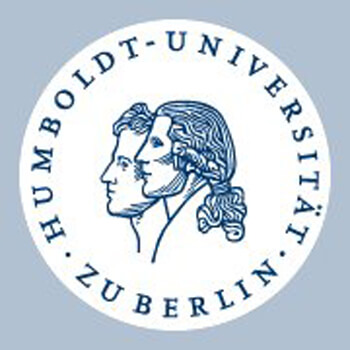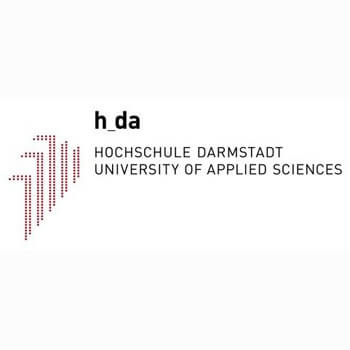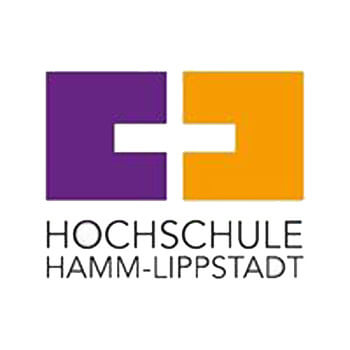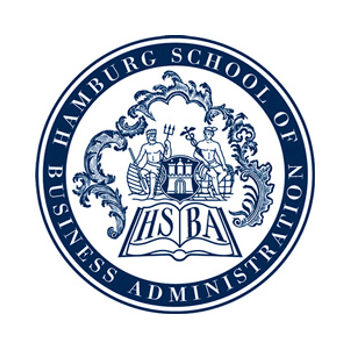Humboldt University of Berlin

Founded: 1810
Address: Unter den Linden 6 - Berlin, Germany
Phone: +4930 209370333
Address: Unter den Linden 6 - Berlin, Germany
Phone: +4930 209370333
Here you find out Humboldt University of Berlin complete information about fees, location, degree Humboldt University of Berlin offers, number, website, and much more. Humboldt University of Berlin is a leading university in Berlin - Germany.
You can also find out jobs at Humboldt University of Berlin for students, teachers, and professors. We also update the database for an internship at Humboldt University of Berlin for students.
Two hundred years ago, in 1810, Wilhelm von Humboldt"s vision of a new type of university became reality. The newly founded Prussian alma mater was the first to introduce the unity of research and teaching, to uphold the ideal of research without restrictions and to provide a comprehensive education for its students. These principles of Wilhelm von Humboldt and a select group of contemporaries ...soon became general practice throughout the world. A new era of university and academic research had begun.
2010 marked the 200th anniversary of the Humboldt-Universität. Numerous events from October 2009 to December 2010 honoured the ideas of its founding fathers. In dialogue with the city of Berlin, the alma mater celebrated science, research and teaching, and the relevance of Humboldt’s founding principles for the present day.
During it’s history, the Humboldt-Universität zu Berlin has undergone many profound changes. The most recent reformation followed the Peaceful Revolution in East Germany in 1989. Many new outstanding professors were appointed from East and West, from Germany and from abroad.
As one of eleven German universities, the Humboldt-Universität was chosen “University of Excellence” in June 2012. It was successful in all three funding lines in the third round of the Excellence Initiative of the German federal and state governments and awarded for its future concept “Educating Enquiring Minds: Individuality – Openness – Guidance”. In an international comparison, Humboldt- Universität ranks among the top ten of German universities. Scientists here research socially relevant topics and challenges of the future and communicate these with the public. Humboldt-Universität invests all its energy in being a place of excellent research and teaching. It’s aim is to promote young talents and to positively influence society and economy outside the university framework.
The founding and rise of Humboldt-Universität were inspired by the conviction that the pursuit of knowledge engages and forms all human faculties and so contributes greatly to the humanization of society. Despite several setbacks, there still is today no better reason to promote knowledge and to secure the future of comprehensive education.
The Humboldt-Universität was established in a period of crisis as an autonomous institution charged with facilitating outstanding scholarly and scientific achievements and promoting the critical examination of established knowledge for the benefit of society. Today, this legacy is still holds after nearly 200 years. Those who work here should have the determination and the capability to advance knowledge and to take responsibility for its application.
To the extent to which the Humboldt-Universität identifies itself with its own tradition, it is also conscious of its own complicity in the dark periods of German history. In its annals we find subservience to state authority, class arrogance and political fanaticism, as well as examples of teaching and research which ignored the basic principles of human rights. Among its darkest chapters are the burning of books and cooperation in the persecution and expulsion of its members. Against this background, since its reorganisation in 1989 the Humboldt-Universität has seen itself as an institution which stands at a critical distance to political and social pressure. It fights every kind of discrimination, intolerance and cultural hubris.
Humboldt"s ideal of the coexistence of research and teaching has become a model for universities all over the world. Central to this model is the idea of research-oriented teaching and the transfer of knowledge from the spirit of research. Students and teachers are joined together in an endeavour to critically examine traditional bodies of knowledge and to actively advance learning. For this reason, the Humboldt-Universität promotes social and communicative competences among all of its members and supports their initiatives wherever it can.
Studying at the Humboldt-Universität demands an active engagement in knowledge. This involves a critical assessment of its preconditions and implications. This is also why the goal of any program of study is not just to acquire disciplinary excellence, but also the education of a person, who combines reliability, efficiency, initiative and scientific curiosity. Every student must understand that he or she contributes to the state of the arts and sciences in our society. Our students have the right and the duty to assume responsibility, not only in the running of the university, but also in teaching and research.
Studying and teaching require two forms of commitment: a commitment to stay current with the latest advances in knowledge and to serve the needs of society. Therefore, the continuous critical revision of the content and types of curricula is an integral part of the Humboldt-Universität"s mission. Based on trust in the independence and the creativity of its teachers and students, this makes a large variety of strategies in teaching and learning possible. The reform of research-oriented teaching, however, can only succeed in the long run if the prestige of teaching is enhanced.
The desire to conduct research is the innovative force behind any scholarly endeavour. Research keeps knowledge alive, it enables and requires a creative and productive crossing of disciplinary boundaries and institutions. As a prominent home for research, the Humboldt-Universität places great value on the preservation of the range of its disciplines and research institutes. This indispensable interdisciplinarity can only be guaranteed through the interaction of medicine, the sciences, the humanities, social sciences and the arts.
All members of the university have the right to work independently, to the extent to their ability. The Humboldt-Universität endeavours to give junior researchers the opportunity to carry out their own teaching and research as early as possible in their careers, because the potential to ennial source for the renewal and revision of knowledge. The Humboldt-Universität does everything in its ability to make it possible for its members to combine parenthood, studying and research.
Providing equal opportunities for both women and men at the university as well as in society is an important goal of Humboldt-Universität. Accordingly, it does its best to ensure that opportunities are distributed fairly, and to utilize and promote women’s abilities in teaching, research and administration. It employs all available means for achieving equal opportunity at all levels and promises to strengthen its gender studies efforts.
The Humboldt-Universität must acquire additional resources to establish its own endowments, so that it can support additional activities in teaching and research. It provides the university’s supporters and sponsors the opportunity to participate in its social and scholarly activities. Maintaining contact with its alumni and building an extensive alumni network is also considered an equally important goal.
Humboldt-Universität’s renewal after 1989 has shown that it is possible to efficiently meet the challenges posed by autonomy. An indispensable part of this autonomy is complete transparency in all administrative processes. In organising smooth cooperation between its different institutions and groups, Humboldt-Universität relies on a combination of participation and individual responsibility as binding principles for all groups involved in the continuous process of reform. Teaching, research and the administration welcome regular external evaluations as an important element of the reform process.
For a first-class university an international exchange in research, teaching and students is second nature. In accordance with its geographical location, the Humboldt-Universität has developed close relationships with northern, central and eastern Europe. This network has now been extended to universities and research centres in other parts of the world, in particular to institutions at the edges of the western world.
The Humboldt-Universität is the meeting place for many different life styles and cultures. The diversity of people which come together in the centre of Berlin creates a productive atmosphere, which the university wishes to use to promote the talent and vision of each of its members. It takes advantage itself of the stimulating surroundings which the local and the international environments provide and uses them responsibly the benefit of society and of the environment, by critically examining the world and actively working to change it.
Those who come to Berlin in order to study, to teach or to conduct research finds a multifaceted and richly structured landscape of universities and research institutes. The Humboldt-Universität is very interested in productive cooperation with other scientific, cultural and economic establishments in the area, as a way of furthering its own goals. With its unique artistic and scientific collections, it contributes considerably to the cultural life of the city. As a venue for social dialogue, it fulfils its role of a university at the heart of Europe.
You can also find out jobs at Humboldt University of Berlin for students, teachers, and professors. We also update the database for an internship at Humboldt University of Berlin for students.
Two hundred years ago, in 1810, Wilhelm von Humboldt"s vision of a new type of university became reality. The newly founded Prussian alma mater was the first to introduce the unity of research and teaching, to uphold the ideal of research without restrictions and to provide a comprehensive education for its students. These principles of Wilhelm von Humboldt and a select group of contemporaries ...soon became general practice throughout the world. A new era of university and academic research had begun.
2010 marked the 200th anniversary of the Humboldt-Universität. Numerous events from October 2009 to December 2010 honoured the ideas of its founding fathers. In dialogue with the city of Berlin, the alma mater celebrated science, research and teaching, and the relevance of Humboldt’s founding principles for the present day.
During it’s history, the Humboldt-Universität zu Berlin has undergone many profound changes. The most recent reformation followed the Peaceful Revolution in East Germany in 1989. Many new outstanding professors were appointed from East and West, from Germany and from abroad.
As one of eleven German universities, the Humboldt-Universität was chosen “University of Excellence” in June 2012. It was successful in all three funding lines in the third round of the Excellence Initiative of the German federal and state governments and awarded for its future concept “Educating Enquiring Minds: Individuality – Openness – Guidance”. In an international comparison, Humboldt- Universität ranks among the top ten of German universities. Scientists here research socially relevant topics and challenges of the future and communicate these with the public. Humboldt-Universität invests all its energy in being a place of excellent research and teaching. It’s aim is to promote young talents and to positively influence society and economy outside the university framework.
The founding and rise of Humboldt-Universität were inspired by the conviction that the pursuit of knowledge engages and forms all human faculties and so contributes greatly to the humanization of society. Despite several setbacks, there still is today no better reason to promote knowledge and to secure the future of comprehensive education.
The Humboldt-Universität was established in a period of crisis as an autonomous institution charged with facilitating outstanding scholarly and scientific achievements and promoting the critical examination of established knowledge for the benefit of society. Today, this legacy is still holds after nearly 200 years. Those who work here should have the determination and the capability to advance knowledge and to take responsibility for its application.
To the extent to which the Humboldt-Universität identifies itself with its own tradition, it is also conscious of its own complicity in the dark periods of German history. In its annals we find subservience to state authority, class arrogance and political fanaticism, as well as examples of teaching and research which ignored the basic principles of human rights. Among its darkest chapters are the burning of books and cooperation in the persecution and expulsion of its members. Against this background, since its reorganisation in 1989 the Humboldt-Universität has seen itself as an institution which stands at a critical distance to political and social pressure. It fights every kind of discrimination, intolerance and cultural hubris.
Humboldt"s ideal of the coexistence of research and teaching has become a model for universities all over the world. Central to this model is the idea of research-oriented teaching and the transfer of knowledge from the spirit of research. Students and teachers are joined together in an endeavour to critically examine traditional bodies of knowledge and to actively advance learning. For this reason, the Humboldt-Universität promotes social and communicative competences among all of its members and supports their initiatives wherever it can.
Studying at the Humboldt-Universität demands an active engagement in knowledge. This involves a critical assessment of its preconditions and implications. This is also why the goal of any program of study is not just to acquire disciplinary excellence, but also the education of a person, who combines reliability, efficiency, initiative and scientific curiosity. Every student must understand that he or she contributes to the state of the arts and sciences in our society. Our students have the right and the duty to assume responsibility, not only in the running of the university, but also in teaching and research.
Studying and teaching require two forms of commitment: a commitment to stay current with the latest advances in knowledge and to serve the needs of society. Therefore, the continuous critical revision of the content and types of curricula is an integral part of the Humboldt-Universität"s mission. Based on trust in the independence and the creativity of its teachers and students, this makes a large variety of strategies in teaching and learning possible. The reform of research-oriented teaching, however, can only succeed in the long run if the prestige of teaching is enhanced.
The desire to conduct research is the innovative force behind any scholarly endeavour. Research keeps knowledge alive, it enables and requires a creative and productive crossing of disciplinary boundaries and institutions. As a prominent home for research, the Humboldt-Universität places great value on the preservation of the range of its disciplines and research institutes. This indispensable interdisciplinarity can only be guaranteed through the interaction of medicine, the sciences, the humanities, social sciences and the arts.
All members of the university have the right to work independently, to the extent to their ability. The Humboldt-Universität endeavours to give junior researchers the opportunity to carry out their own teaching and research as early as possible in their careers, because the potential to ennial source for the renewal and revision of knowledge. The Humboldt-Universität does everything in its ability to make it possible for its members to combine parenthood, studying and research.
Providing equal opportunities for both women and men at the university as well as in society is an important goal of Humboldt-Universität. Accordingly, it does its best to ensure that opportunities are distributed fairly, and to utilize and promote women’s abilities in teaching, research and administration. It employs all available means for achieving equal opportunity at all levels and promises to strengthen its gender studies efforts.
The Humboldt-Universität must acquire additional resources to establish its own endowments, so that it can support additional activities in teaching and research. It provides the university’s supporters and sponsors the opportunity to participate in its social and scholarly activities. Maintaining contact with its alumni and building an extensive alumni network is also considered an equally important goal.
Humboldt-Universität’s renewal after 1989 has shown that it is possible to efficiently meet the challenges posed by autonomy. An indispensable part of this autonomy is complete transparency in all administrative processes. In organising smooth cooperation between its different institutions and groups, Humboldt-Universität relies on a combination of participation and individual responsibility as binding principles for all groups involved in the continuous process of reform. Teaching, research and the administration welcome regular external evaluations as an important element of the reform process.
For a first-class university an international exchange in research, teaching and students is second nature. In accordance with its geographical location, the Humboldt-Universität has developed close relationships with northern, central and eastern Europe. This network has now been extended to universities and research centres in other parts of the world, in particular to institutions at the edges of the western world.
The Humboldt-Universität is the meeting place for many different life styles and cultures. The diversity of people which come together in the centre of Berlin creates a productive atmosphere, which the university wishes to use to promote the talent and vision of each of its members. It takes advantage itself of the stimulating surroundings which the local and the international environments provide and uses them responsibly the benefit of society and of the environment, by critically examining the world and actively working to change it.
Those who come to Berlin in order to study, to teach or to conduct research finds a multifaceted and richly structured landscape of universities and research institutes. The Humboldt-Universität is very interested in productive cooperation with other scientific, cultural and economic establishments in the area, as a way of furthering its own goals. With its unique artistic and scientific collections, it contributes considerably to the cultural life of the city. As a venue for social dialogue, it fulfils its role of a university at the heart of Europe.
Read More
Details:
LeaderShip: President: Prof. Dr.-Ing. Dr. Sabine Kunst
Fees:
Time:
Phone Number: +4930 209370333
City: Berlin
Fees:
Time:
Phone Number: +4930 209370333
City: Berlin
Timing:
Country: Germany
Staff:
Website: http://www.hu-berlin.de
Country: Germany
Staff:
Website: http://www.hu-berlin.de
Subjects:
Video:
Jobs in Humboldt University of Berlin
Currently, there is no job opening in Humboldt University of Berlin as per our database.



















Leave a Reply